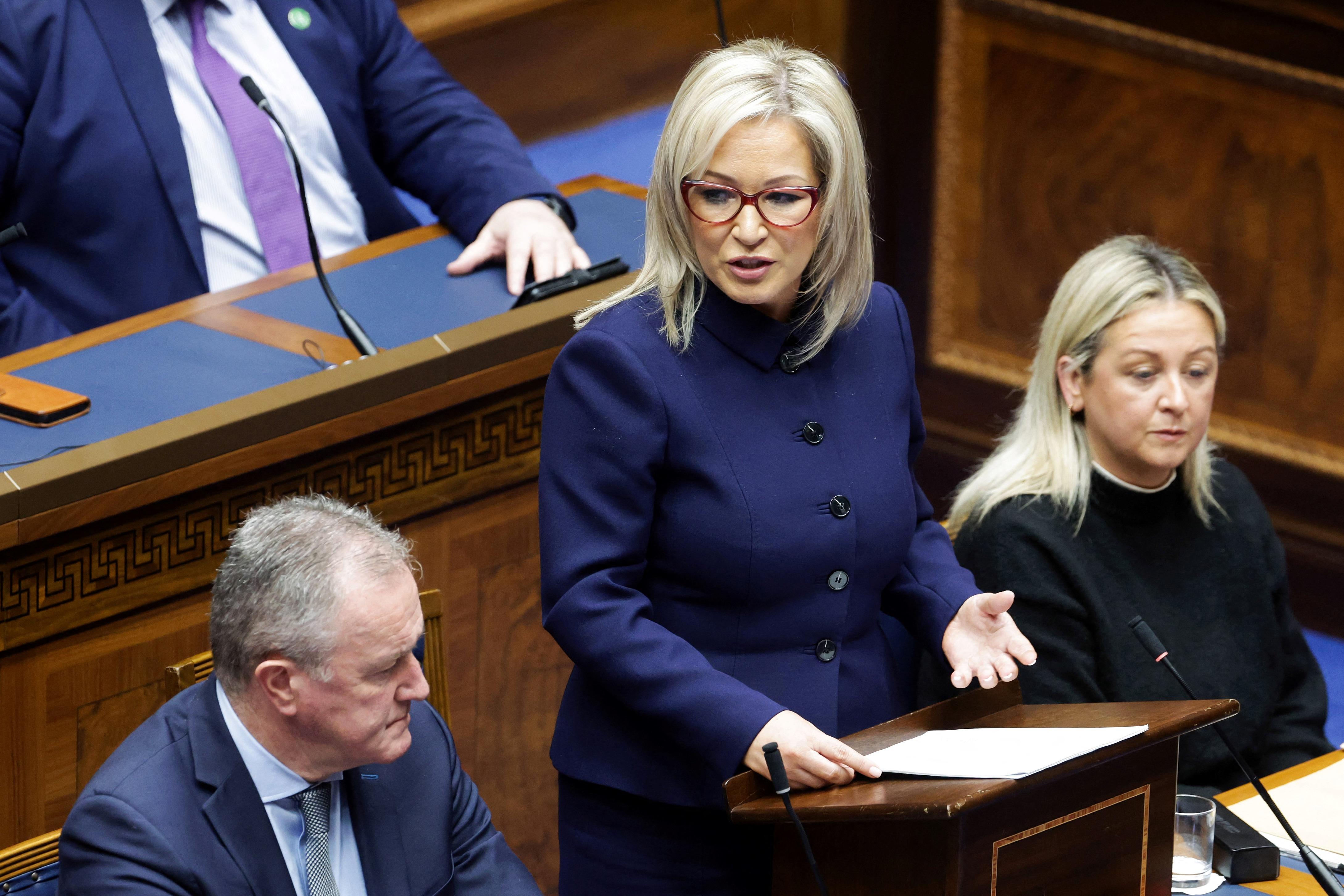 A handout photograph released on February 3, 2024 by the Northern Ireland Assembly shows newly appointed Northern Ireland's First minister, from Sinn Fein, party Michelle O'Neil speaking during the Northern Ireland Assembly, at the Parliament Building, in Stormont. (PHOTO / NORTHERN IRELAND ASSEMBLY / AFP)
A handout photograph released on February 3, 2024 by the Northern Ireland Assembly shows newly appointed Northern Ireland's First minister, from Sinn Fein, party Michelle O'Neil speaking during the Northern Ireland Assembly, at the Parliament Building, in Stormont. (PHOTO / NORTHERN IRELAND ASSEMBLY / AFP)
LONDON - The Northern Ireland Assembly (Stormont) was officially restored Saturday in Belfast after a two-year hiatus, with Sinn Fein's Michelle O'Neill appointed as Northern Ireland's first minister.
O'Neill said in her speech that the day "opens the door to the future."
"We mark a moment of equality and progress. A new opportunity to work and grow together," she said. "This is an assembly for all -- Catholic, Protestant and dissenter."
Emma Little-Pengelly from the rival Democratic Unionist Party (DUP) was selected as deputy first minister
ALSO READ: UK unveils pro-British party deal to restore N. Ireland govt
Emma Little-Pengelly from the rival Democratic Unionist Party (DUP) was selected as deputy first minister.
The appointments came after the DUP ended a two-year boycott of the region's power-sharing government early this week. The DUP and the government of the United Kingdom (UK) struck a deal to remove routine checks on goods moving from Great Britain to Northern Ireland. The deal was subsequently approved by the UK parliament.
The DUP, the largest pro-British party in Northern Ireland, collapsed the power-sharing government with the Irish nationalist party Sinn Fein in February 2022 in a dispute over post-Brexit trade rules.
The DUP has been in vehement opposition to the Northern Ireland Protocol, the trade solution agreed by London and the European Union (EU) to prevent a hard border between Northern Ireland and the neighboring Republic of Ireland.
READ MORE: N. Ireland's DUP strikes deal to return to power-sharing govt
Under the deal, an Irish Sea border was created between the British mainland and Northern Ireland, meaning goods transported to and from Northern Ireland are subjected to border controls.
The power-sharing model of government in Northern Ireland was introduced in the 1990s as a way of ending decades of violence as part of the Good Friday Agreement. It requires the representation of both nationalist and unionist parties in any government.


